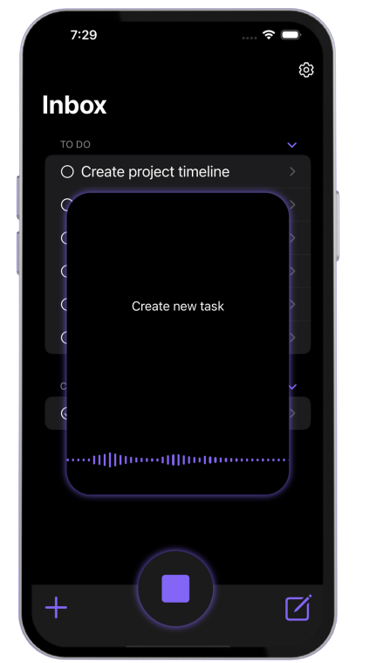You start with fire in your belly — a list of goals, a fresh planner, maybe even a vision board. You tell yourself, “This time I’ll do it all.” And for a while, you do. You hustle, grind, check off to-dos, and build momentum.
But then… something shifts. A creeping sense of pressure replaces the excitement. Tasks that once thrilled you now feel heavy. You start asking yourself:
“Why doesn’t this feel good anymore?”
This quiet, creeping exhaustion is called goal fatigue — the emotional and cognitive burnout caused by endlessly chasing the next milestone. It’s not that you’re lazy or unmotivated. It’s that your brain is tired of constantly living in the future. And while ambition is often celebrated, chronic goal-chasing can erode joy, creativity, and even your sense of identity.
In this article, we’ll explore the psychology behind goal fatigue, what causes it, how it sneaks up on high achievers, and what to do if you’re stuck in the loop.
What Is Goal Fatigue?
Goal fatigue is the mental and emotional exhaustion that builds up when you’re constantly striving toward the next thing — without giving yourself space to rest, reflect, or feel satisfied. Unlike classic burnout, which is often tied to overwork, goal fatigue is more internal. It’s about feeling numb, restless, or unsatisfied no matter how much you achieve.
This happens because your brain treats goals as problems to solve, not states to enjoy. The moment you accomplish something, it immediately looks for what’s next. And while setting goals is essential for growth, doing it constantly — without pause — leads to an ambition loop you can’t escape from.
🧠 In psychological terms, this ties into goal-directed cognition — the brain’s process of focusing attention, energy, and emotion on a future reward. But overuse of this system creates mental fatigue and emotional flatness.
What Causes Goal Fatigue?
Goal fatigue isn’t just about being tired — it’s about being emotionally detached from your goals. But why does that happen?
The answer lies in how your brain processes motivation. When we set a goal, our brain releases dopamine — the “feel good” neurotransmitter linked to reward. But here’s the catch: dopamine is triggered more by anticipation than achievement. That means we get the biggest high while chasing a goal — not when we reach it.
So what happens when we’re constantly chasing?
- The brain becomes desensitized to the reward
- We start needing bigger goals to feel the same thrill
- Small wins stop feeling meaningful
- We never pause to reflect or enjoy — we only pursue
This leads to a cycle of diminishing motivation. The more we chase, the less satisfied we feel. Eventually, we experience emotional burnout even when things are “going well.” That’s goal fatigue in action.
Signs You’re Experiencing Goal Fatigue
Not sure if this applies to you? Here are some common signs:
- You feel guilty for resting, even after hitting milestones
- You’re addicted to planning and starting — but rarely finish
- You keep moving the goalpost: nothing ever feels “done”
- Your goals feel like burdens, not sources of inspiration
- You’re constantly mentally “on,” even in your downtime
- You confuse busyness with purpose
If your ambition feels more like a burden than a fire, you’re likely stuck in a cycle of goal fatigue.
The Psychology Behind the Loop
Goal fatigue is closely tied to a concept called the “goal gradient effect” — the tendency to work harder as we get closer to completing a goal. But once the goal is reached, motivation plummets. Instead of resting, many people immediatelyreplace it with a new one — and the cycle starts again.
Also at play is the hedonic treadmill — a psychological phenomenon where we quickly adapt to positive changes and return to a baseline level of happiness. That promotion, that degree, that achievement? You’re excited — for a moment. Then it fades.
When goal-setting becomes your identity, you start chasing meaning in achievements, rather than building meaning into your day-to-day actions. And that’s emotionally exhausting.
How to Break Free from Goal Fatigue
You don’t have to give up ambition to protect your mental energy. But you do need to rethink your relationship with goals. Here’s how:
✅ 1. Focus on Systems, Not Just Goals
Set up repeatable actions that lead to growth, regardless of outcome.
→ Example: Instead of “publish a book,” commit to “write for 30 minutes a day.”
✅ 2. Reintroduce Rest as a Metric of Success
Build intentional pauses into your workflow — not as rewards, but as non-negotiables.
→ No clarity = no creativity.
✅ 3. Reflect Before You Reset
After completing a goal, take time to process it. What worked? What drained you? What did it mean to you?
✅ 4. Reconnect With Intrinsic Motivation
Why did you start in the first place? Rediscover the joy of doing, not just the thrill of finishing.
→ Intrinsic goals (curiosity, growth, contribution) are more sustainable than external ones (money, status, metrics).
Final Thoughts: You’re Not Lazy — You’re Just Overloaded
We glorify goals like they’re the answer to everything. But sometimes, they’re the very thing making us feel numb, tired, or disconnected. Goal fatigue doesn’t mean you’re unmotivated — it means you’ve been living in fast-forward for too long.
So take a breath. Slow down. Your worth isn’t defined by the number of goals you chase — it’s found in how intentionally you live.



